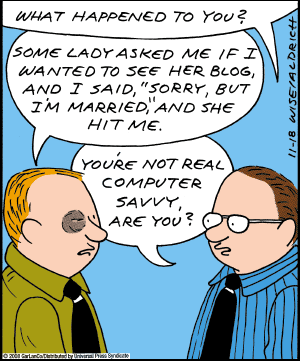NEW YORK – StoryCorps, the most ambitious oral history project ever undertaken, will launch the first annual National Day of Listening on November 28, 2008. On Thanksgiving, Americans and loved ones gather to share a meal, express their gratitude and reminisce. StoryCorps is asking Americans to linger a little longer in the Thanksgiving spirit and honor a loved one by conducting an interview about his or her life.
 This site provides more detail and audio as well as links to a guide to helping you through the interview as well as how to archive and/or share it. In addition to being a great idea for family and personal reasons, it could be a foray into podcasting. If your audio is 8 minutes or less and relates to content taught here at the school, or pedagogy/andragogy, we'd post it on our podcast. You will greatly appreciate the time you spend doing this - regardless of when or if you post it.
This site provides more detail and audio as well as links to a guide to helping you through the interview as well as how to archive and/or share it. In addition to being a great idea for family and personal reasons, it could be a foray into podcasting. If your audio is 8 minutes or less and relates to content taught here at the school, or pedagogy/andragogy, we'd post it on our podcast. You will greatly appreciate the time you spend doing this - regardless of when or if you post it.Also this week, we have a new resource on the pedagogy of powerpoint - focusing on when, where and why. There's a pretty funny and apt teachertube video on the subject - regrettably the resolution could be better.
Need something more to be thankful for? Free downloads of Bob Dylan and Johnny Cash performing together in 1969. Via openculture
BTW: the turkey is oragami/ papercraft. Taken originally from a Japanese website - find English directions and info here.










